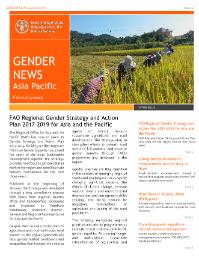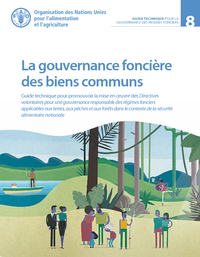WEBSITE INTRODUCTION: This book examines large-scale land acquisitions, or ‘land grabbing’, with a focus on South-East Asia. Thematic papers and detailed case studies put this phenomenon into specific historical and institutional contexts, analysing transformations in livelihoods, human rights…
WEBSITE INTRODUCTION: In the Mekong region, conflicts between local communities and large scale land concessions are widespread. They are often difficult to solve. In Cambodia, an innovative approach to conflict resolution was tested in a case involving a private company, Hoang Anh Gia Lai (HAGL…
ABSTRACTED FROM EXECUTIVE SUMMARY: Land rights systems in Southeast Asia are in constant flux; they respond to various socioeconomic and political pressures and to changes in statutory and customary law. Over the last decade, Southeast Asia has become one of the hotspots of the global land grab…
The desperate search for ways to combat climate change gives rise to new mitigation policies and projects, with questionable impacts on people and the environment. Among these mitigation projects is the increasing support of large-scale ‘sustainable’ forestry plantations as part of the broader…
In June 2012, Cambodia’s prime minister issued an order on land titling that deployed student volunteers to survey and map the country’s territory. Examination of this initiative at the theoretical intersections of mapping, mimicry and govemmentality demonstrates the violent exclusions inherent…
Agrarian resistance often occurs as a result of expropriation and dispossession of poor farmers’ land and other properties. This paper examines how cost-benefit rational choice determined the government of Cambodia’s response to poor farmers’ resistance to large-scale land acquisition for an…
The purpose of the report is to provide documentary evidence of land disputes recorded throughout 2015. This evidence was gathered from articles on land disputes from local printed media, meetings with Land and Housing Right Network (LAHRiN) members, and through on-site data collection. This…
Poverty reduction has become a worldwide promise, yet the term itself has been commonly abused to legitimize development policies and projects with truly questionable impacts on the poor. This article critically reflects on how claims of poverty reduction through agricultural development have…
Cambodia has long had a difficult mix of resource wealth and weak land governance, a function of its legacy of enduring postwar conflict and neoliberal development policies of the 1990s. Since 2012, however, its government has undertaken a series of self-described ‘deep reforms’ aimed at…
The Regional Office for Asia and the Pacific (RAP) has now in place its Gender Strategy and Action Plan 2017-2019. Building on the corporate Policy on Gender Equality (2012) and the spirit of the 2030 Sustainable Development Agenda, the Strategy provides new focus to gender-related work in the…
The Asia-Pacific region is a hotspot for forest landscape conflicts which are played out between local communities and outsiders such as government agencies and private companies. Increased competition for limited natural resources, rapid sociopolitical change, and expanding markets for forest…
À travers le monde, des millions de personnes dépendent des ressources naturelles telles que les terres, les pêches et les forêts, qui sont utilisées collectivement comme des biens communs. Les biens communs sont essentiels à la culture, à l’identité et au bien-être. Source de nourriture et de…



